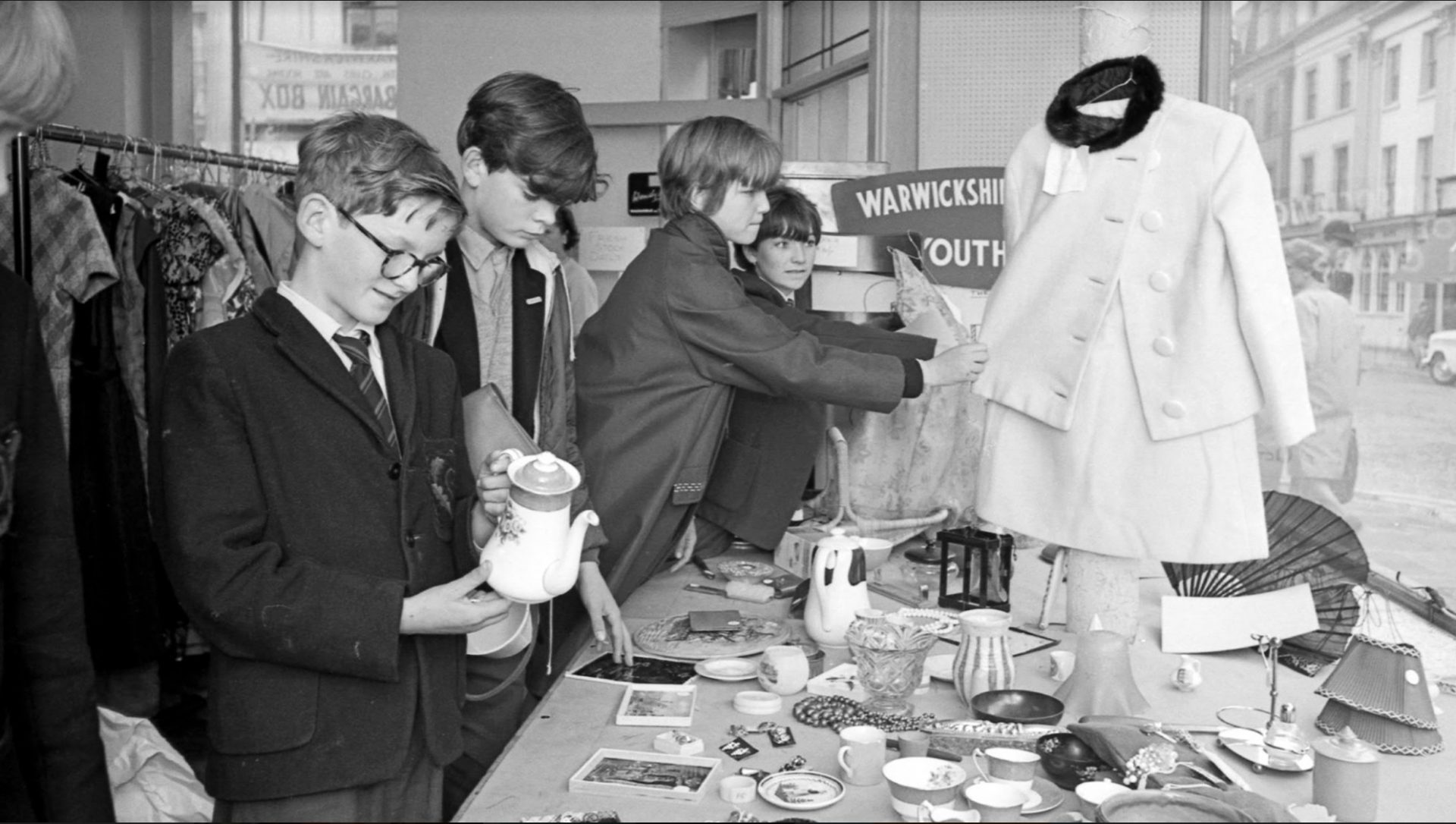Can a hepcat look at a cool queen? Well, yes – but only under these circumstances: when he’s standing at the junction of the Stockwell and Clapham Roads, while she’s sweeping past in a specially armoured Range Rover. I wonder what the Queen Consort made of our little patch of south London as, preceded by motorcycle outriders with sirens howling and lights flashing, her progress was so unimpeded that she spent all of 30 seconds in
these environs – I wouldn’t even have known it was her, if it wasn’t for the distinctively chinless-yet-resolute profile, and the fact that her visit to the Emmaus charity shop in nearby Brixton was then covered by the Times, a newspaper whose current editorial policy seems to be little else besides showcasing the ding-donging between senior and junior Windsors.
“Balancing” the vast amount of column inches expended on the Morons of Montecito, are any number of slavish pieces about the impeccably regal doings of the King and Queen. At the Emmaus shop, the Queen was reported as having vouchsafed to one of the staff that she, too, had been known to pick up a bargain at a charity shop. Lawks! Cue a chorus line of Cockneys with linked arms, high-kicking and singing out: “Ain’t she just the salt of the
earth! Ain’t she! We don’t resent the illimitable power and privilege, because scratch ’er and you’ll find someone just like us! Keen on a bargain, a fag an’ a laugh…” Or words to the same anodyne effect; which is to reinforce again and tediously again that while the last incarnation of the hierarchical principle may have shuffled off this mortal coil, there’s another one only too willing to undertake the necessary go-round.
But anyway – royalty isn’t the issue here, it’s charity shop bargains. True, there was a time when you could not only buy well-made and fashionable clothes for next to nothing at Oxfam et al, but that time only existed because of a major shift in the culture of consumerism – and it’s now long gone. A well-made 1950s sharkskin suit; a bespoke, pinstripe 1940s one; 1960s brown suede slip-on shoes with elasticated sides; any number of collarless shirts; ex-services greatcoats, still with their brass buttons – this is just a small selection of the apparel I remember buying from charity shops in the late 1970s and early 80s. No single item – so far as I can recall – costing more than a fiver.
True, while you could buy a bespoke suit – it hadn’t been tailored for you, but rather for some portly 1940s fellow, with a pot belly and short spindly shanks, but that didn’t matter: this was the era of punk and a certain degree of mis-fitting only contributed to the overall effect. The clothes, shoes and hats came from another era: one before the widespread use of synthetic fabrics, and before the vast majority of garment fabrication was outsourced to Bangladesh, Vietnam and all points east.
Yes: the era when you truly could pick up a bargain in a charity shop was a function of the arrival of globalisation and its neoliberal ideology: it was the closing-down sale of the former workshop of the world, and we never saw its like again. Nowadays – as any fool, but not the Queen – knows, charity shops are for the most part either full of dismal tat; or, are like Oxfam’s specialist bookshops: stocked with the crème of the haute bourgeoisie’s discarded… crème. I don’t suppose the Queen is a big fan of the Frankfurt School, but before she pronounces on what is and what isn’t to be construed as a bargain in this regard, she might reflect on Walter Benjamin’s characterisation of fashion: “It prostitutes the living body to the organic world. In relation to the living it represents the rights of the corpse. Fetishism, which succumbs to the sex appeal of the inorganic, is its vital nerve; and the cult of the commodity recruits this to its service.”
He goes on to observe that the novelty of fashion is paradoxically delusional, for what’s unique about the brand-new frilly nylon panties the dedicated follower pulls right up tight, is that they’re exactly the same as those of all the other dedicated followers. And so, it goes on and on, around and around – which leads me to conclude that perhaps monarchy is the issue after all, for the British one markets itself as at once a fast fashion item and a timeless
classic. As for the “sex-appeal of the inorganic”, this nicely captures the royalists’ recherché raptures.



